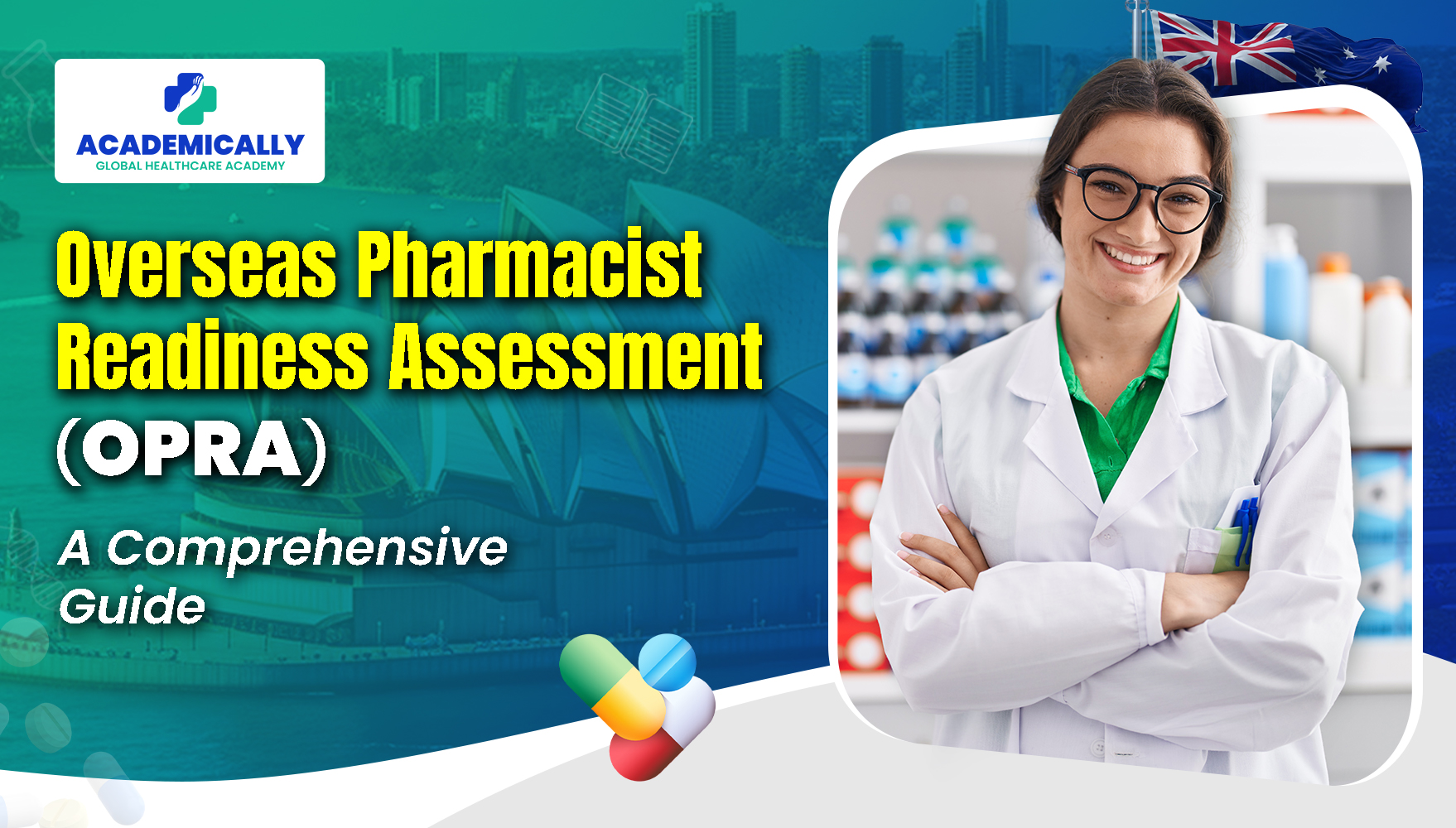What is OPRA™, and What Are the Changes?
This change is part of the APC’s commitment to modernising exam design and delivery, ensuring that the assessments are not only current and valid but also reflective of the real-world demands of the pharmacy profession in Australia.
Key Changes
Shorter Exam Duration: The OPRA™ exam is more concise, offering a shorter, single-paper format.
Content Revision: The content areas have been updated to reflect contemporary pharmacy practice better.
Updated Scoring Methodology: The methodology used to score the exam has been refined, though the specific details remain in line with ensuring fairness and accuracy.
Reduced Cost: Candidates will also benefit from a reduced cost for the OPRA™ exam compared to the KAPS exam.
What Has NOT Changed
- The exam difficulty remains unchanged, maintaining the same rigour as KAPS.
- The eligibility and registration processes are identical to those for the KAPS exam.
- The exam will still be conducted at test centres.
- The number of attempts allowed and the validity period of the results have remained unchanged.
Read More: Overseas Pharmacist Readiness Assessment (OPRA): A Comprehensive Guide

How to Prepare for the OPRA exam?
The Overseas Pharmacists Readiness Assessment (OPRA) exam has new challenges and opportunities. Here's how you can effectively prepare for this new format:
1. Understand the New OPRA™ Exam Pattern
The OPRA exam differs from the KAPS in both duration and structure. It’s a single-paper, 2.5-hour exam with 120 questions. Understanding these changes is critical for adjusting your study strategies.
2. Study According to the OPRA™ Syllabus
Obtain the most recent syllabus for the OPRA exam and thoroughly review the updated content areas. Prioritise your study time based on the weightage of each topic.
3. Practice Within the OPRA™ Time Frame
Given the shortened duration in OPRA, practice completing full-length exams within the 2.5-hour time limit. This will help you get accustomed to the pace required to answer all 120 questions effectively.
Take practice exams under timed conditions that mimic the actual test environment. This will help build stamina and improve your time management skills.
4. Prepare for OPRA™ Using the Rasch Method
The OPRA exam will use the Rasch scoring model, emphasising consistency and accuracy across different question difficulties. Familiarise yourself with this model to understand how your answers will be evaluated. The difficulty of questions adjusts based on your performance. Use practice tests that mimic this format to build your adaptability and problem-solving skills.
Focus on answering questions accurately and consistently. The Rasch method rewards precision and penalises guessing.
Read More: OPRA Exam for Overseas Pharmacists: Pattern, Structure and Testing Method Explained
5. Focus on Practical Knowledge for OPRA™
The OPRA exam will emphasise practical knowledge and real-world pharmacy scenarios. Integrate scenario-based questions and case studies into your study routine.
Apply theoretical knowledge to practical situations, ensuring you can think critically and make decisions as you would in a real pharmacy setting.
6. Practise AI-Based OPRA Tests
Utilise AI-based testing platforms, such as those offered by Academically, to get personalised feedback on your performance. These platforms often adapt to your learning style and provide targeted practice questions for the OPRA exam.
AI-based tests can help identify your weak points and tailor practice sessions to focus on areas where you need the most improvement.
7. Seek Help from OPRA™ Experts
Consider enrolling in courses or hiring tutors who specialise in OPRA exam preparation. Expert guidance can provide insights into exam strategies and clarify complex topics, since the new exam pattern requires more focussed study.
All these can be achieved by joining the OPRA Exam Preparation Course. Aprat from these you will also get personalised OPRA™ exam preparation tips from our experts.
Final Thoughts
The transition from KAPS to OPRA™ represents a shift in how overseas pharmacists will be assessed. Adapting to these changes requires a focused and informed approach to preparation. By understanding the new exam format, using updated resources, practising regularly, and staying engaged with relevant materials, you can enhance your readiness for the OPRA™ exam.
For more information about OPRA, please fill out this form for one-on-one counselling with our expert.